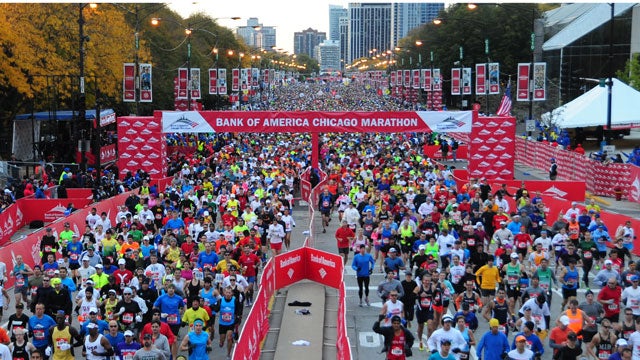The 36th is among the largest to be held since last April’s , where three people were killed when bombs exploded near the finish line. As a result of those bombings, Chicago runners will notice a dramatic increase in security measures.
For the first time, participants must personally pick up their own race packets—collecting bibs for other runners is not allowed. Runners will also be given clear plastic bags to carry their belongings to the race start. An email from the race organizers outlined the changes:
The only gear bag that you will be permitted to bring inside the perimeter of Grant Park on race day and to check at Gear Check will be the clear plastic race-issued bag that you will receive along with your packet and event T-shirt at the ExpoBackpacks, luggage, and other non-event issued bags will not be accepted at Gear Check.
Prior to entering Grant Park, participants will also be required to go through one of four security checkpoints. Runners’ bibs must also be visible at all times, throughout the duration of the event.
Cameras, police, and even bomb-sniffing dogs will monitor the 26.2-mile course, which stretches along Lake Michigan and is estimated to attract nearly 2 million spectators.
“We will have a strong uniformed and undercover presence along the rout in the crowd, because it is an awfully large route to police,” Chicago Police Superintendent Garry McCarthy told .
But with 45,000 expected participants, the marathon spirit remains strong. “In some sense, they’re more determined to run and be at larger events to show that what happened in Boston isn’t going to affect who they are, or change what they do as a runner,” Wendy Jaehn, of the Chicago Area Runners Association, told .
Read more about security at the Chicago Marathon .


